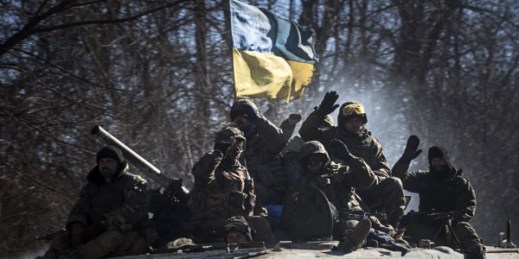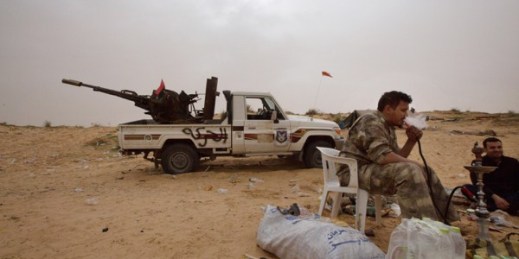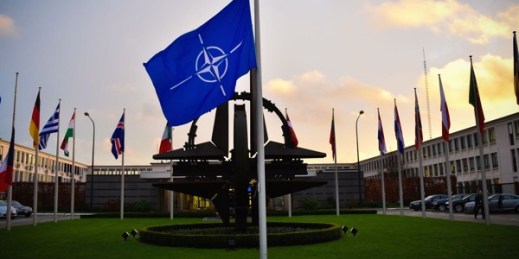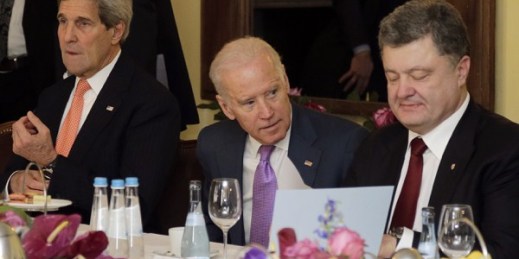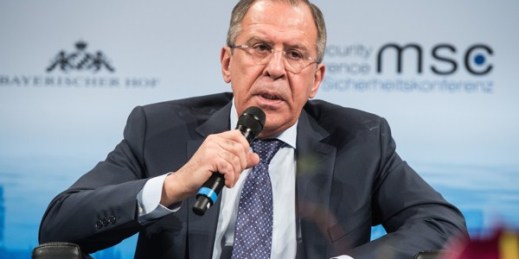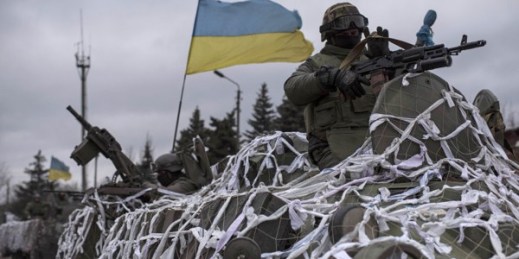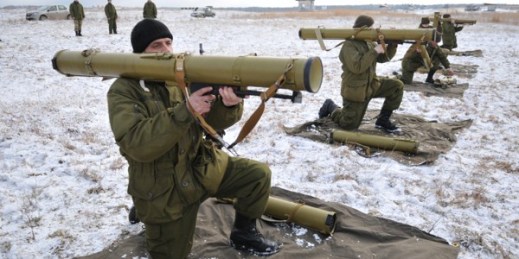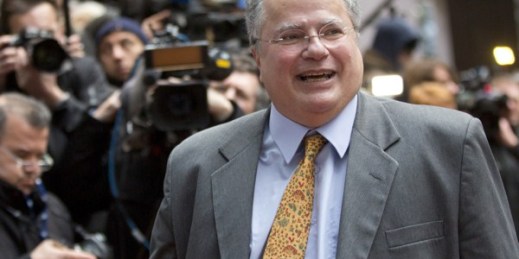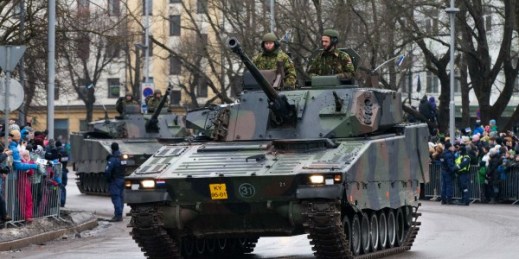
The latest cease-fire between government forces and Russian-backed separatists in eastern Ukraine remains tenuous, but there are some signs it may hold for now. Kiev withdrew heavy artillery from the front today as the Russian ruble rallied for the first time since its collapse in December, prompted both by the cease-fire and by a rebound in global oil prices. While Russia’s economic outlook remains grim, with Western sanctions still in place, Russian President Vladimir Putin can claim some measure of victory after a year of interventions in Ukraine. Meanwhile, to the north, the three Baltic states—Estonia, Latvia and Lithuania—are faced […]

